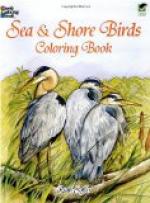As if she saw from some spiritual height the reign of terror she predicted, she dropped her head upon her hands and closed her eyes, and I felt my blood creep slowly through my veins as I followed her in thought across the waste of woe and desolation. For there was something in her manner, her voice (august and solemn with age and wisdom as these were), that impressed all who heard, with or in spite of their own consent, and for a time profound silence succeeded this harangue.
Dr. Durand was the first to recover himself. “I trust, my dear madame,” he remarked, “that the substantial horrors realized in your youth still cast their dark shadows over the coming years, and so deceive you into prophecies that it is sad to hear from lips so reverent, and which, let us all pray, may never be realized. You yourself will say amen to that, I am convinced.”
“Amen!” she murmured.
“Nonsense, Durand! don’t play at hypocrite in your old age, after having been a true man all your life,” broke in Major Favraud. “What is a conservative, after all, but a social parrot, who repeats ’wise saws and modern instances,’ until he believes himself possessed of the wisdom of all the ages, and is incapable of conceiving of the existence even of an original idea?”
“By-the-by,” digressed Duganne, weary of discussion, “hear that old fellow outside, how he is going on, Favraud, a propos of poll parrots, you know, as it all else, but the name of the bird, had been lost on his ear. Just listen!”
“Yes, hear him, and he edified,” was the sarcastic response of Favraud to Duganne, who took no other notice, even if he understood the point, than to lead the way to the portico, where swung the cage of the jolly bird in question; and, headed by Madame Grambeau leaning on her cane, we followed simultaneously, with the exception of Major Favraud, who continued at the table with his cigar and cognac-flask, in sullen and solitary state.




